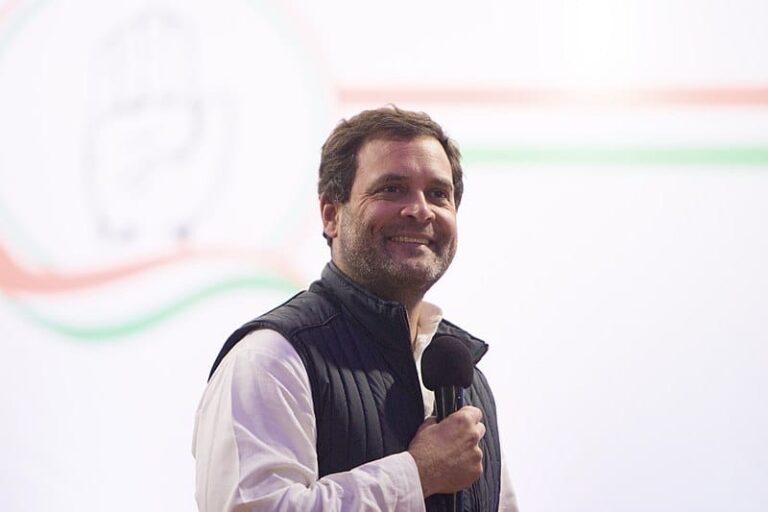
Mr Gandhi made the pledge while speaking to medical professionals at an event in Chhattisgarh state capital Raipur. The event – a National Convention on Healthcare for All – marked his first visit to the state since dates for this year’s elections were announced.

“Gandhi…made a pledge of increasing government spending on health to three percent of GDP [and] also announced plans that the Congress would work to formulate a Healthcare Act”
Gandhi, who has been President of the Indian National Congress since December 2017 despite leading the party to its worst ever electoral defeat in 2014, made a pledge of increasing government spending on health to three percent of GDP. He also announced plans that the Congress would work to formulate a Healthcare Act to provide a minimum standard of care to all Indians and stated that training more medical professionals to compensate for countrywide shortages was a manifesto pledge.
“The biggest cause of falling back into poverty is healthcare,” Gandhi said at the event. “So healthcare is, in a sense, a foundation and we have to ensure that foundation is built firmly.”
Gandhi also castigated the Centre’s flagship healthcare scheme Pradhan Mantri Jan Arogya Yojana (PMJAY) – better known as Ayushman Bharat or ‘Modicare’ after Prime Minister Narendra Modi.
“My main criticism of Ayushman Bharat is, it gives insurance without a proper support structure from hospitals and medical professionals,” Gandhi told attendees. He said the scheme “is targeting [a] very limited number of healthcare issues” and accused it of being a “handout to the fifteen to twenty richest businessmen in India”, adding “that’s not the type of scheme we’re going to run. You need public expenditure in health and education.”

“Present spending on healthcare by the Indian government amounts to around 1.4 percent of GDP as of the 2017-18 period – an incremental rise of 0.2 percent from 2013-14”
Present spending on healthcare by the Indian government amounts to around 1.4 percent of GDP as of the 2017-18 period – an incremental rise of 0.2 percent from 2013-14. This year’s Union Budget saw the budget for the Union Ministry of Health and Family Welfare (MoHFW) increased by thirteen percent, despite earlier requests for a 33 percent increase. Meanwhile, Ayushman Bharat saw a 167 percent increase in its outlay compared to the previous fiscal year. As Health Issues India noted at the time
Gandhi’s remarks pledging an increase in the healthcare budget could cynically be viewed as an attempt to undermine Ayushman Bharat and draw voters. It could also be viewed as an earnest commitment to ensuring access to healthcare for all in India. As Health Issues India has often noted, Ayushman Bharat does not lack ambition. However, there is no shortage of practical issues related to a lack of human resources and facilities for which the scheme may not be able to compensate.
It is undoubtedly good news, irrespective of intent, that Gandhi and other lawmakers are talking about health. However, it is of vital importance that no matter who is voted into government when the polls close in May, they are held to account for any promises made on health – and no matter the politics, healthcare continues to be assessed as an issue of vital importance to the lives of all Indians.

